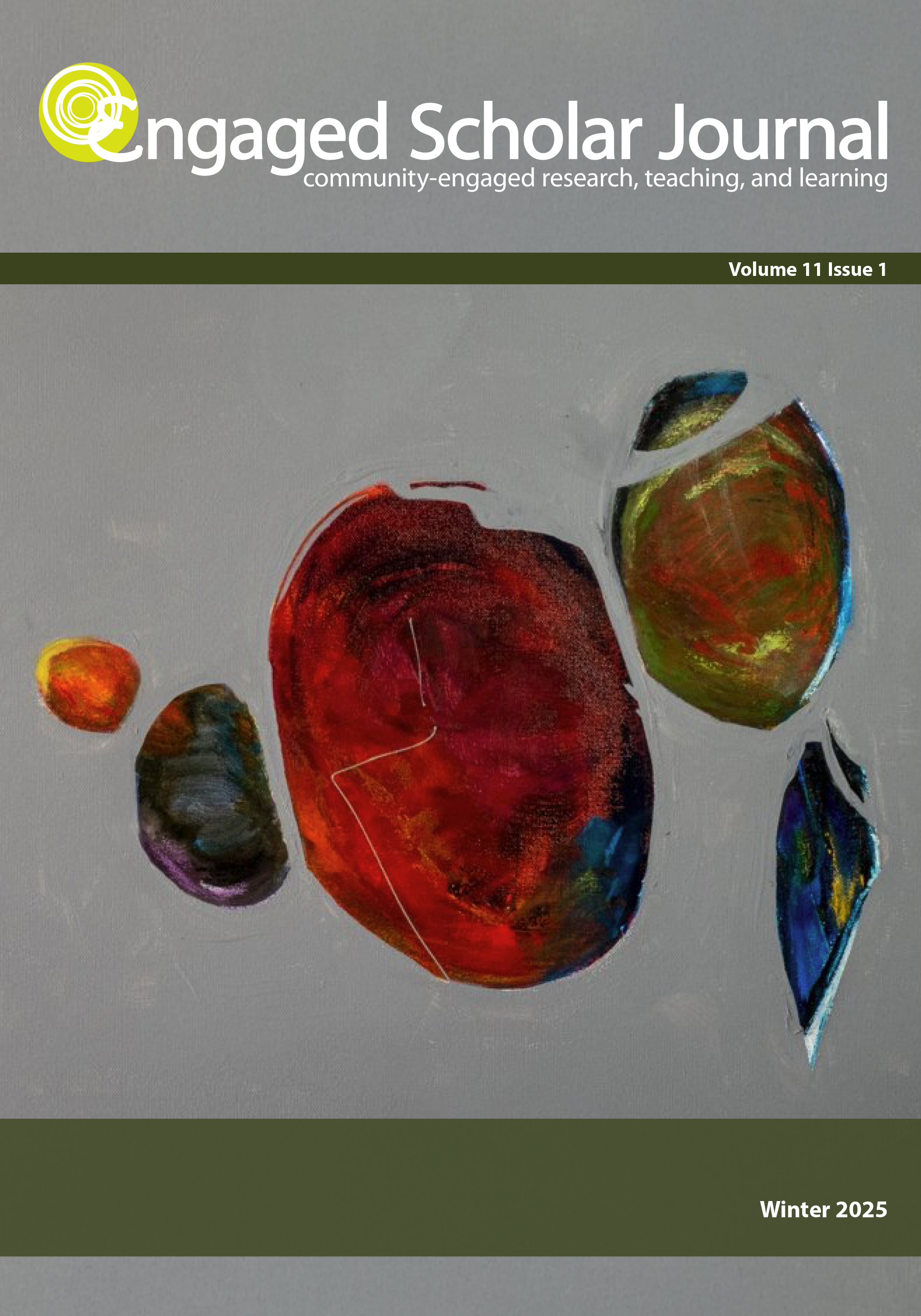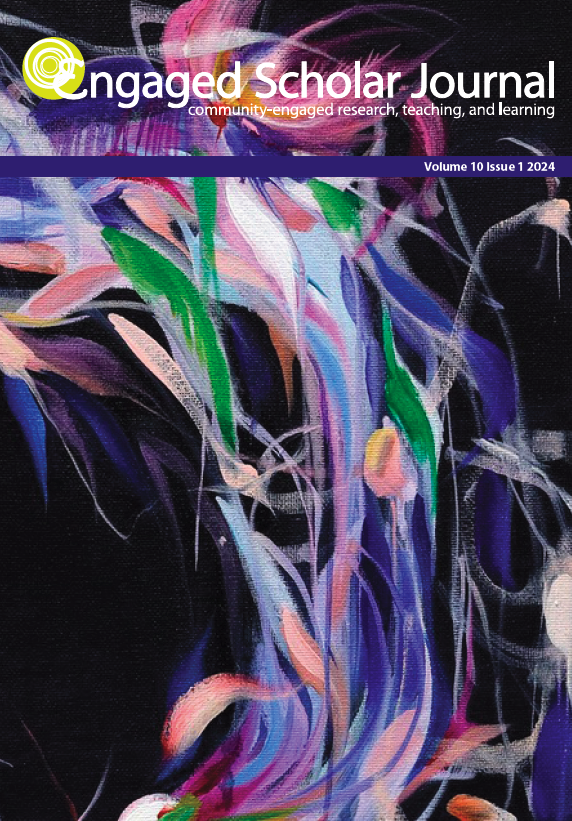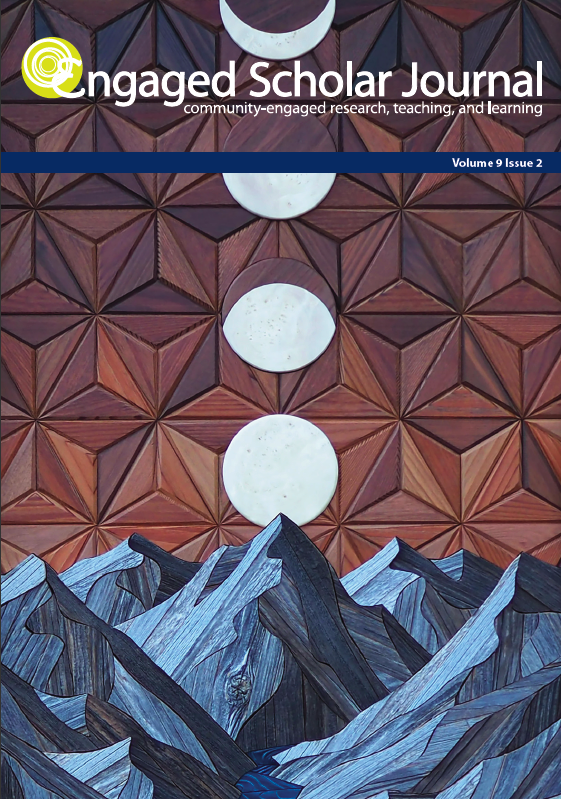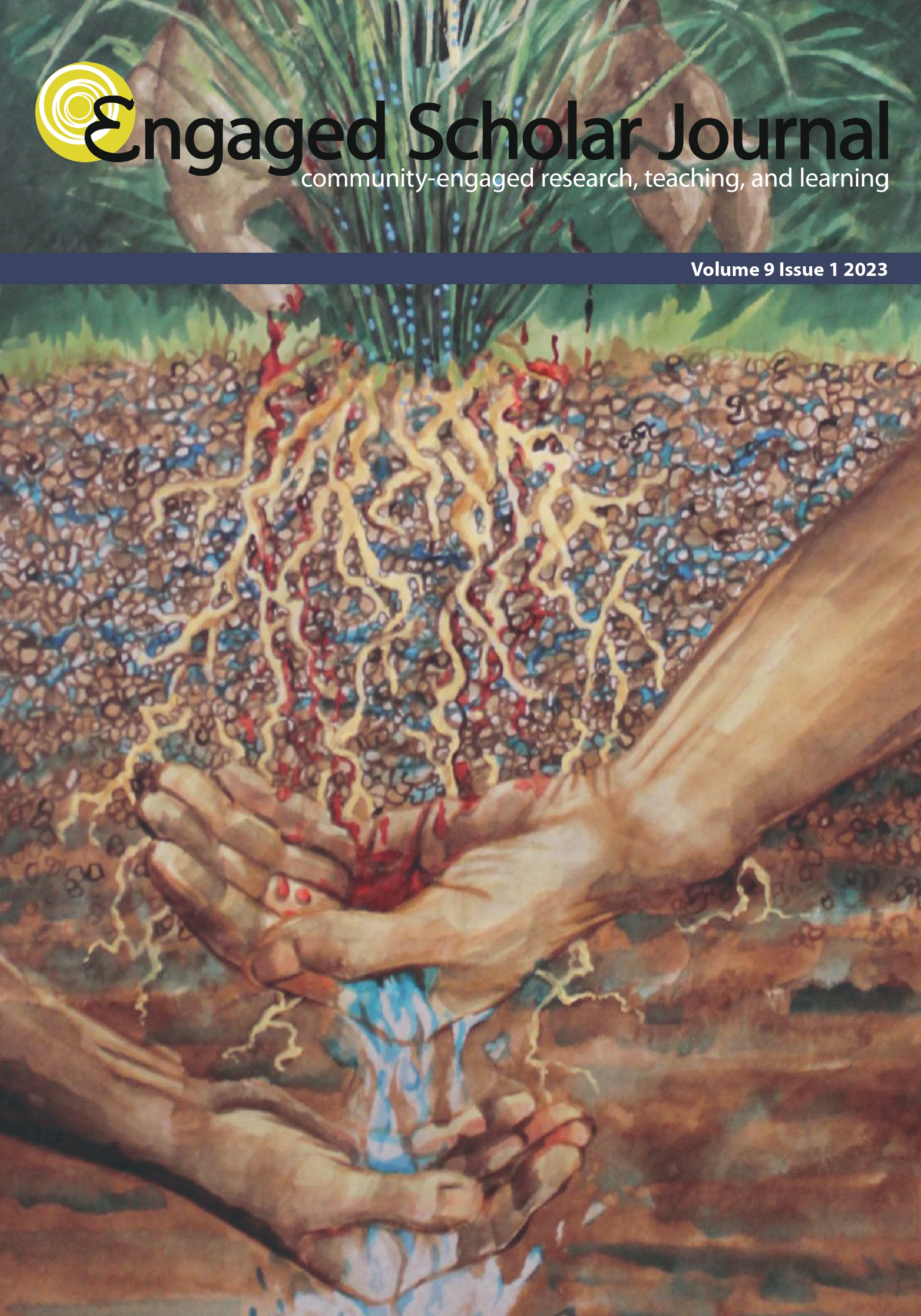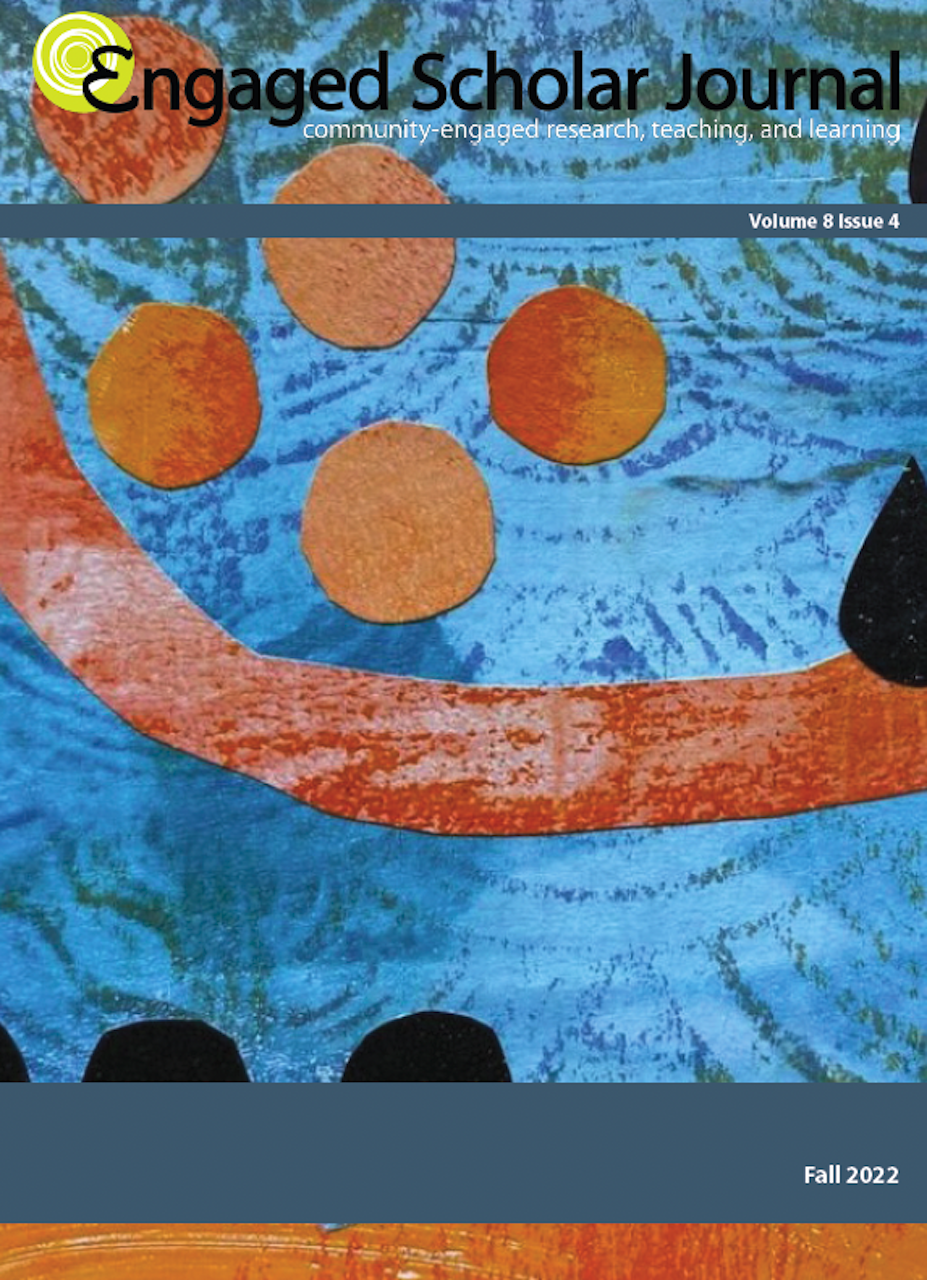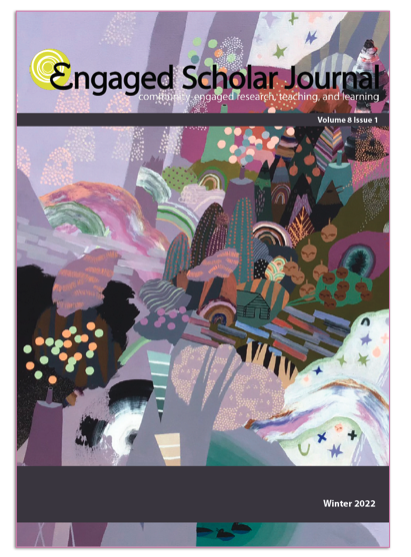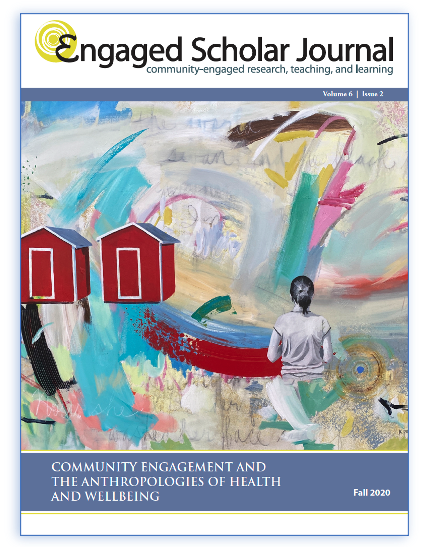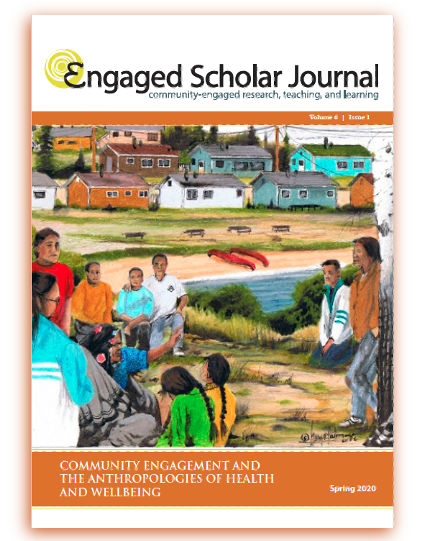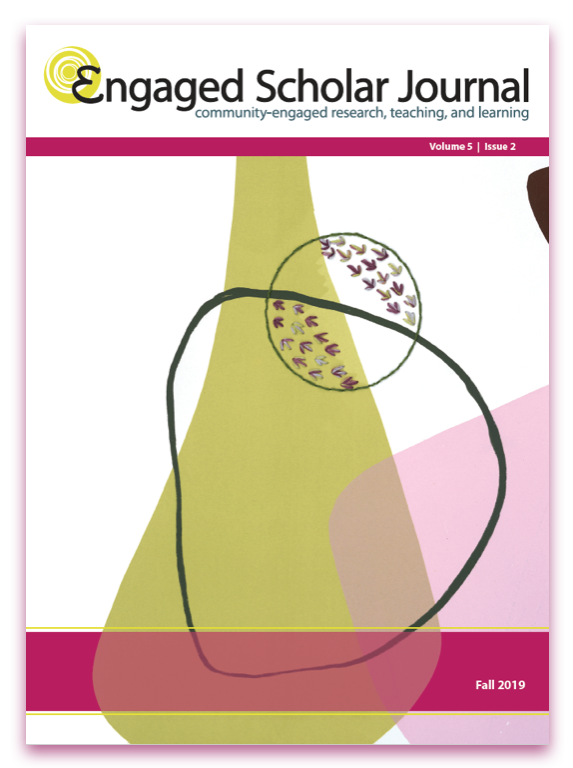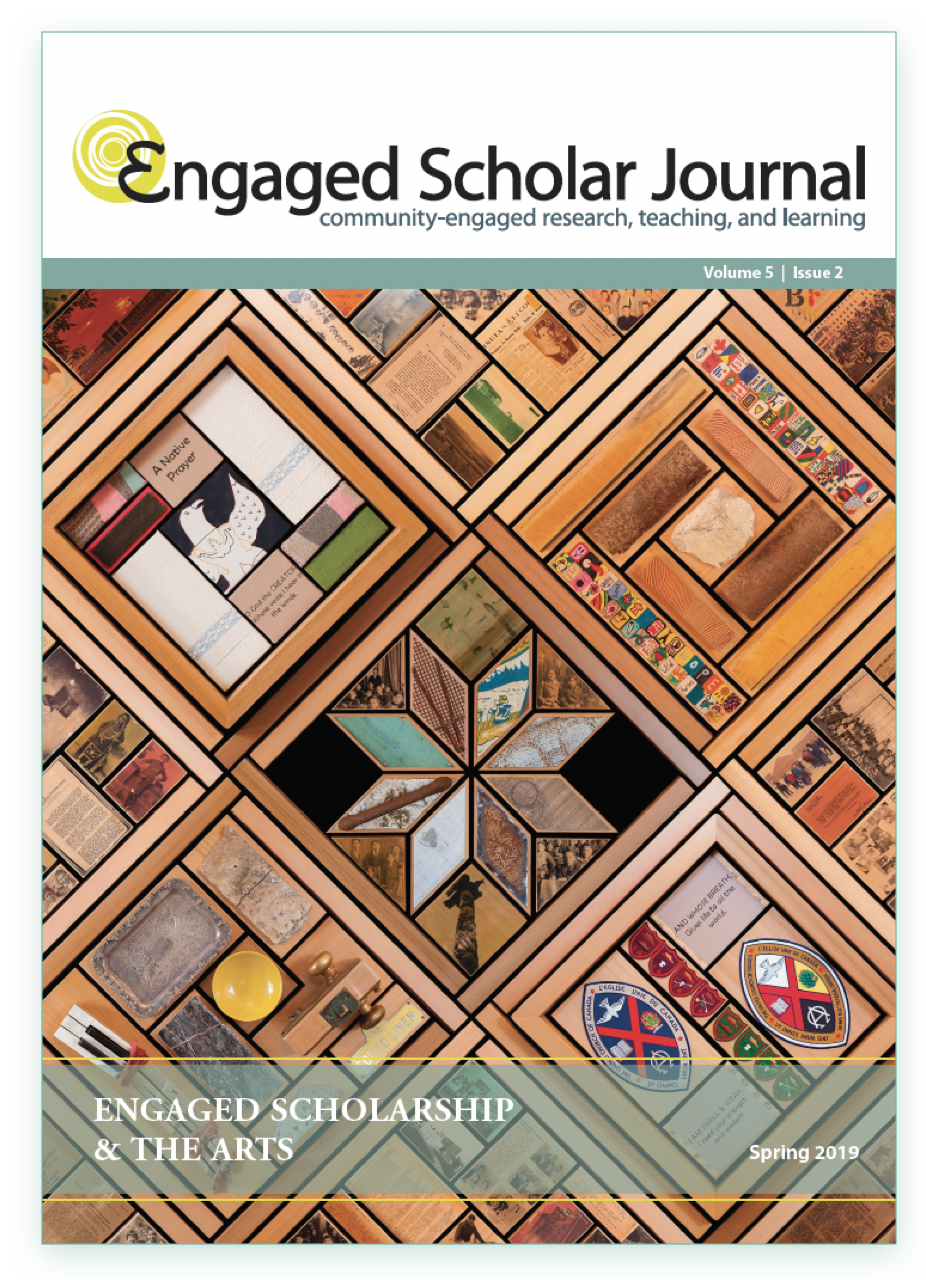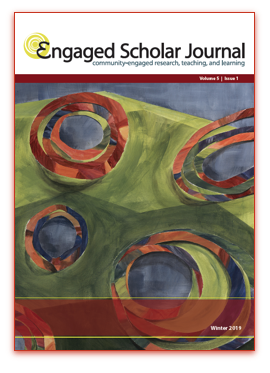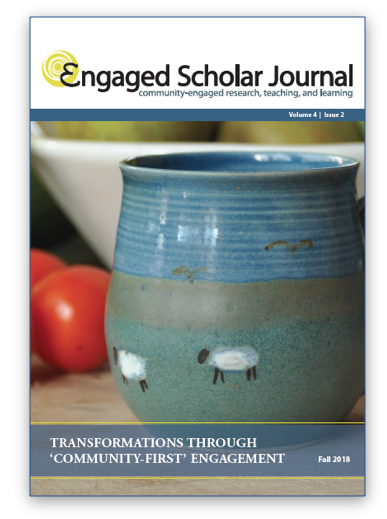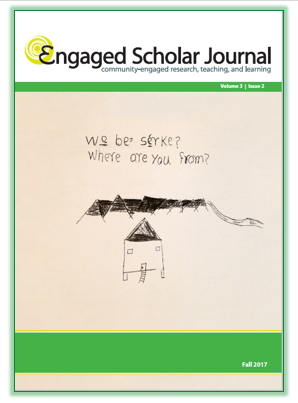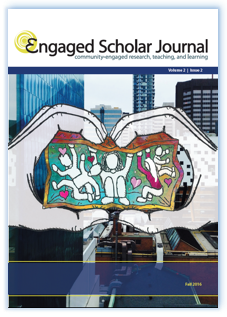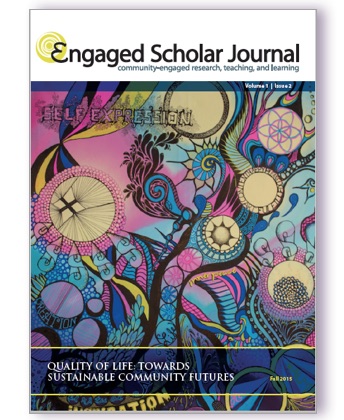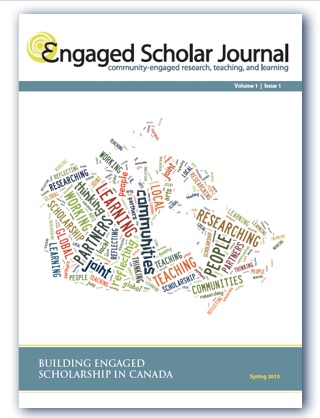Archives
-
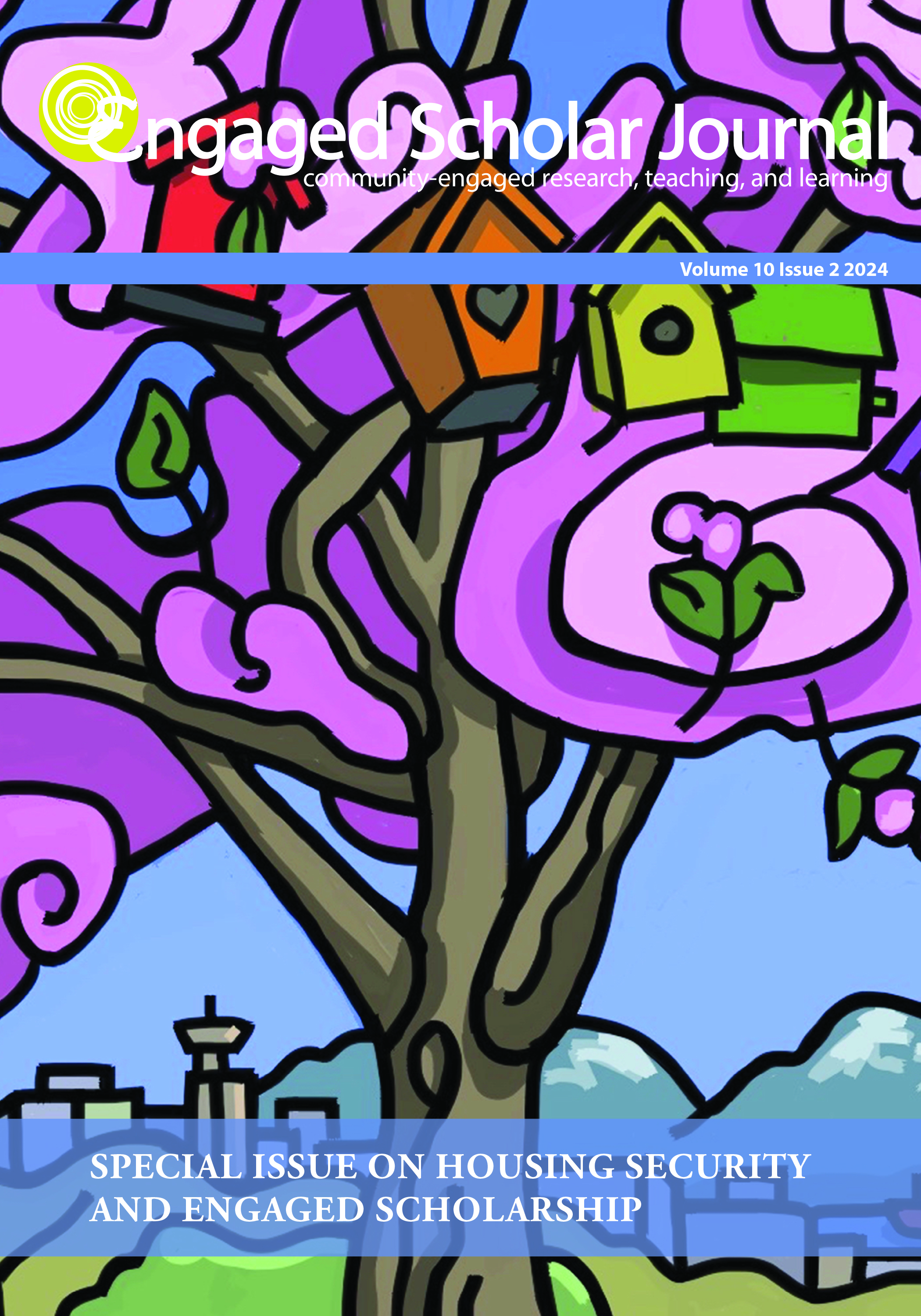
Engaged Scholarship and Housing Security
Vol. 10 No. 2 (2024)In this special issue on Engaged Scholarship and Housing Security, we share the insights of emergent approaches, digital tools, advocate-scholars, and community champions doing the hard work. We recognize, support, and highlight research and researchers of all types who are using engaged scholarship, community-based approaches, and/or community-driven and managed research and activities around housing security, including those using diverse and multiple ways of knowing about housing security.
Cover Artwork: "Vancouver Affordable Housing" by Gary Nay
-
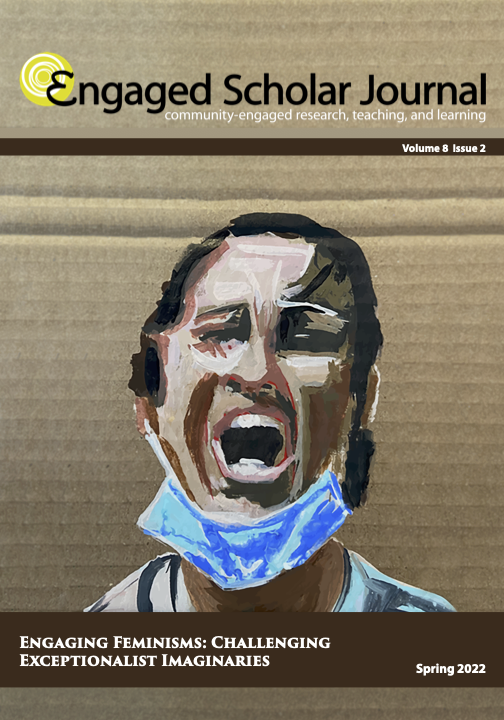
Challenging Exceptionalist Imaginaries through Feminist Community Engagements
Vol. 8 No. 2 (2022)Contemporary exceptionalisms are so commonplace that many slip by unremarked in the busyness of overheated neoliberal efforts to avoid asking: what is the just, meaningful, and critical work that matters most for supporting mutual flourishing across peoples, species, places, and spaces? Exceptionalisms are fundamental to prevailing structures of violence, bias, and the micro- and macro-aggressions they animate within and across borders and bodies. Practices for facilitating aggression and ignorance as privileged measures of power map rather neatly onto the current global pandemic to which they have given rise.
Cover Image: Health Care Worker by Dawna Rose (2020)
-
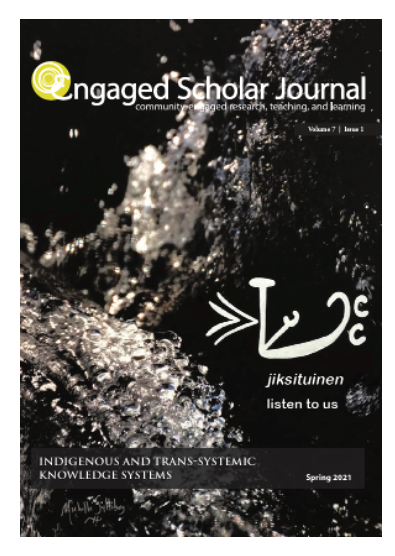
Indigenous and Trans-Systemic Knowledge Systems
Vol. 7 No. 1 (2021)This special issue addressing the theme of “Indigenous and Trans-Systemic Knowledge Systems” seeks to expand the existing methods, approaches, and conceptual understandings of Indigenous Knowledges to create new awareness, new explorations, and new inspirations across other knowledge systems. Typically, these have arisen and have been published through the western disciplinary traditions in interaction and engagement with diverse Indigenous Knowledge systems. Written by Indigenous and non-Indigenous scholars, and in collaborations, the contributions to this issue feature the research, study, or active exploration of applied methods or approaches from and with Indigenous Knowledge systems as scholarly inquiry, as well as practical communally-activated knowledge. These engagements between Eurocentric and Indigenous Knowledges have generated unique advancements dealing with dynamic systems that are constantly being animated and reformulated in various fields of life and experiences. While these varied applications abound, the essays in this issue explore the theme largely through scholarly research or applied pedagogies within conventional schools and universities. The engagement of these distinct knowledge systems has also generated reflective, immersive, and transactional explorations of how to foster well-being and recovery from colonialism in Indigenous community contexts.
-
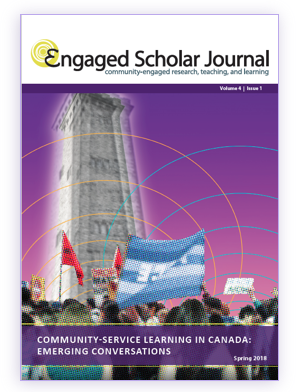
Community Service-Learning in Canada: Emerging Conversations
Vol. 4 No. 1 (2018)This special issue invites engaged learning practitioners and scholars, both established and emerging, to take stock of the history of CSL, assess current practices, and consider how to move forward in the future. Is CSL the biggest thing to hit Canadian campuses since the late 1990s? With approximately fifty CSL programs or units across the country (Dorow et al., 2013), annual gatherings of scholars and practitioners, and a network of individuals who remain devoted to CSL despite challenges in funding and logistics, CSL in Canada has certainly made its mark, embedded in the context of a larger movement of engaged scholarship on campuses across the country—a movement exemplified in this very Engaged Scholar Journal, the first of its kind in Canada to focus on publishing community-engaged work.
-
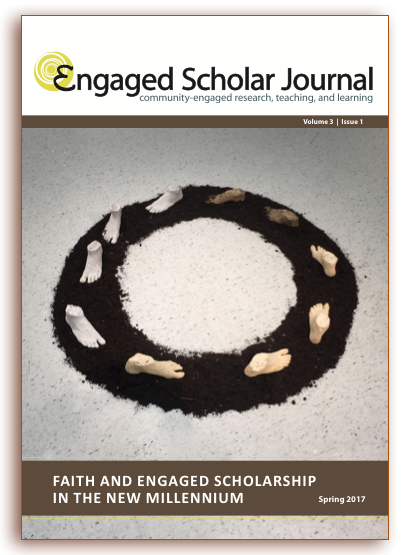
Faith and Engaged Scholarship in the New Millennium
Vol. 3 No. 1 (2017)Despite the prominence of the “secularization thesis” among academics prior to the turn of the millennium, religion is not in decline worldwide. The Pew Research Center’s (2015) estimates show that until at least 2050 the number of people practicing a religion is expected to grow globally, particularly in Africa, the Middle East, and southern Asia. Democratic trends mean these regions are likely to remain major sources of immigrants to Western countries (United Nations 2015). These trends will supplement other trends towards growing religiosity in immigrant-receiving countries such as Canada, the United States, New Zealand, and Australia. Given such demographics, this issue is timely. This issue brings a community-engaged perspective into the dialogue concerning how to properly understand the place of faith in contemporary societies (Ager et al. 2015; Bramadat and Biles 2005; Cnaan and Boddie 2006).
-
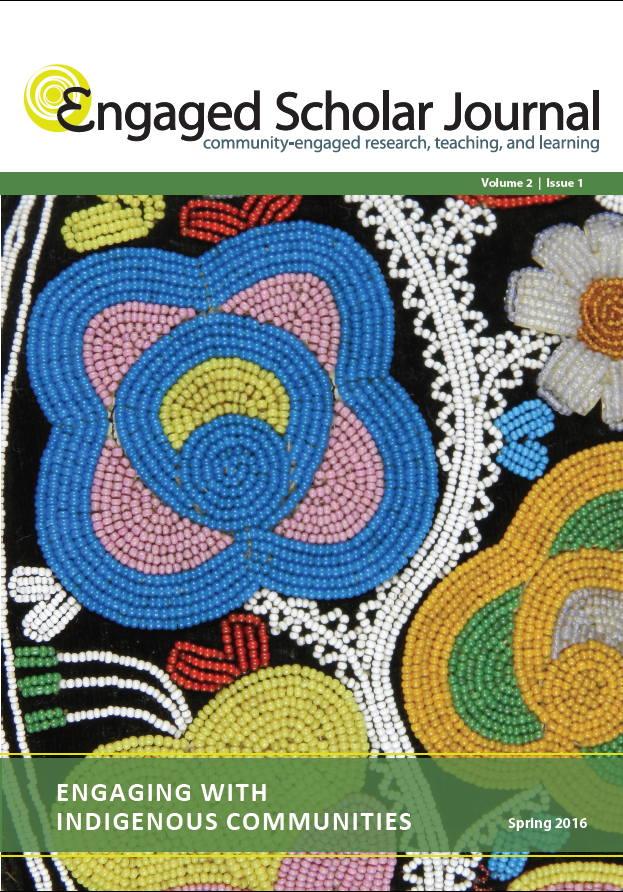
Engaging with Indigenous Communities
Vol. 2 No. 1 (2016)The way in which scholarly work and research has been commonly pursued on Indigenous cultures and peoples has been subject to criticism for a number of decades. As early as 1969 Vine Deloria Jr. in Custer Died for Your Sins criticized scholars for engaging in useless and objectifying research, and argued for relevant communitydriven research. While community-engaged research has been gaining traction in the academy recently, community engagement has been an important dimension and principle of Indigenous research for quite some time. Since the 1980s Indigenous scholars from across the globe assert that Indigenous-focused research needs to be respectful, collaborative and useful. Today we have witnessed the shift from “Indigenous as object” of study to community-engaged collaborative research that is based on and driven by Indigenous agency.

